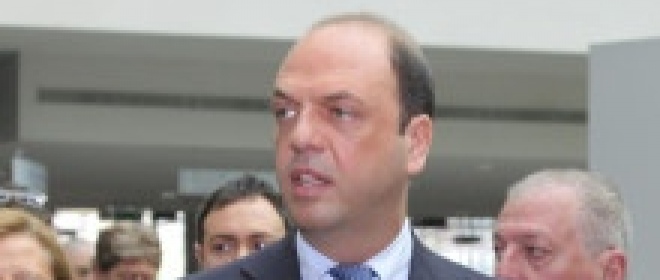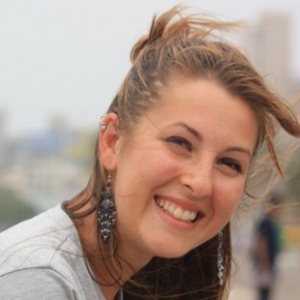

“To see the world, things dangerous to come to, to see behind walls, to draw closer, to find each other and to feel. That is the purpose of life”.
Per chi, come me e come Walter Mitty, si sentiva o, tuttora, si sente imprigionato in un presente e in una vita senza più obiettivi e da un giorno all’altro ha la possibilità di cambiare, di prendere tutto il necessario e di partire alla scoperta del mondo, per voi saranno i miei consigli di viaggi (Trips’ Tips).
Voi siete la cosiddetta generazione dei “cervelli in fuga”, voi potete essere “cervelli” o non, giovani o non, ma, sicuramente, siete arrivati ad avere consapevolezza della vostra vita e di tutto ciò che vi è possibile fare.
È interessante sapere perché non è più così facile immaginare un futuro nel proprio paese natio. Cercherò, quindi, di sgrovigliare questa matassa descrivendovi come differisce la vita in un’altra nazione, in questo caso il Belgio, più in particolare Bruxelles.
Senza fare alcuna demagogia analizzerò le differenze positive e negative tra queste due nazioni e non solo.
In queste pagine parlerò del mio viaggio, della mia partenza dall’Italia.
L’obiettivo è proprio aiutarvi a farlo, non solo dandovi una mano, tramite link, nel trovare casa, lavoro e amici; ma anche ampliando la vostra cultura del bello o del brutto o del mediocre descrivendo, criticando ed entusiasmandovi riguardo a film, canzoni e tutte quelle forme d’arte di cui è possibile parlare e, soprattutto, scrivere.
Con manifestazioni e spettacoli di ogni genere, vi renderò partecipi e vi incuriosirò a tal punto da fare una capatina in quel di Bruxelles.
Questo blog potrà essere per voi una guida sul prossimo film da vedere oppure sulla prossima città da esplorare.

Chiara Girardi
Chiara Girardi, classe 1989, è nata a San Benedetto del Tronto, ma vive da sempre ad Ascoli. Dopo aver conseguito la maturità classica si iscrive a Lingue e Letterature Straniere, lingua Inglese e Russo, all’Università “Carlo Bo” di Urbino. La facoltà le offre la possibilità di spendere il suo terzo anno in Erasmus a Nottingham, con un soggiorno di 10 mesi per frequentare la Nottingham Trent University. Laureatasi a Urbino sceglie di continuare gli studi all’estero e cerca, con successo, l'iscrizione a un Master a numero chiuso di Giornalismo Internazionale alla Dublin City University, in Irlanda. Così, Chiara sceglie di andare a vivere a Dublino, dove rimane anche dopo la laurea per continuare gli studi e allo stesso tempo guadagnarsi da vivere lavorando e scrivendo articoli su giornali italiani della città e magazine online. Fa un corso serale di Russo al Trinity College Dublin, dove la vita per un anno e mezzo procede fra studio e lavoro, sino a quando decide di trasferirsi ulteriormente in Inghilterra, a Brighton. Nel Regno Unito le cose non vanno granché bene, così, dopo appena 3 mesi, Chiara decide di tornare in Italia. Un “viaggio della speranza al contrario” che porta Chiara a fare un lavoro che non la soddisfa e non trovando nient’altro, dopo vari tentativi di ricerca di un lavoro nel mondo, torna in Europa per un tirocinio a Bruxelles.
TAGS
Ago 19
di Chiara Girardi

In front of LIBE Committee, the Italian Minister listed some of the most important measures to be taken during the Italian Concil Presidency Semester, such as tackling immigration with "actions that deliver results" in the short, medium and long terms.
Angelino Alfano, about border control and migration, emphasized that "responsability and solidarity should go hand in hand" and stressed the need for a stronger cooperation between the EU and African countries of origin and transit of migrants.
The Italian Minister of Interior Affairs, also declared that a Commissioner for Immigration could be a good thing "as far as he or she has true powers" without being "a hollow shell". The European Commission President, Jean-Claude Juncker, wants to create this office, and Alfano replied that it has to be "a strategic role, and this necessarily implies to have resources, staff, structures and a strong coordination role", because "the problem can no longer be handled by a single Minister of Interior Affairs, it now involves the Minister of Foreign Affairs who must cooperate with his colleague for organising immigration policies."
The 19th of August, one of the spokespersons of the European Commission, Anthony Gravili affirmed: "All the solution which could help Italy should have all Member States involved," and "we have told them several times that they should be doing more, with means and contributions." A strong rejection of Alfano's plans then: "We need to focus on reality" still, "we will try to rationalise the operations in order to make them more effective."
The European Institutions outlined that "the work done by Italy is acknowledged as magnificent," still with "unprecedented financial aid" from the Union: "about €500 million in the 2007-2013 period; Italy will be the biggest beneficiary for the 2014-2020 period with €325 million (given the cuts to the EU balance asked by Member States)."
From the beginning of Mare Nostrum Operation, the Italian Government covered all costs. From the first budgets, the monthly costs of the operation were estimated around 1.5 millions of euro, according to the official declarations of the Ministry of Defence, even though the opeartion's results, during the first period, were excellent: more than 2000 immigrats were rescued.
Mare Nostrum rescue operation, a military and humanitarian
mission, started last 18th of October 2013 in Southern
Mediterranean with the preparation of personnel, naval units and
aircraft from the Italian Navy, the Army, Air Force, Carabinieri,
Customs Service, Coast Guard, Police officers and other national
agencies with the aim to control migration flows, to get close to
the Northen African coast from which the boats with immigrants
depart, to take care and give a first aid to the immigrats. The
first coasts targeted by illegal immigration were in region Apulia
and then even in Calabria, Sicily, in particular the islands of
Lampedusa, Pantelleria and Lampione, and even Sardinia have become
sadly notorious for the countless shipwrecks with thousands of
victims. The activity often involves rescue operations, either for
the bad health conditions of the refugees who are trying to reach
Europe, or for the conditions of the precarious boats they are
sailing on.
According to the agreement, Mare Nostrum Operation had to be framed
into the FRONTEX, the European Union Agency for the External border
security. It is responsable for co-ordinating the activities of the
national border guards in ensuring the seurity of EU's borders with
non-member states, it was created with the aim to patrol the
European air, maritime and land borders. The main role of Frontex
is to protect EU external borders from illegal immigration and
people trafficking as well as infiltration into Europe by possible
terrorist elements. While each member state has the task to control
its own borders, the Agency is vested to ensure that they all do so
with the same high standard of efficency.
When the Italian Government, during last October EU Summit, pushed to have more help from FRONTEX, the European Union answered with the European External Border Surveillance System (EUROSUR), designed to support the Member States in their efforts to reduce the number of illigal immigrants entering the European Union by improving their situational awareness at their external borders. EUROSUR uses drones, reconnaissance aircraft, Offshore sensors and satellite remote sensing to track illegal immigration, it was put into effect by the European Parliament on October 10th 2013. This program allows exchange of information, that supports the cooperation of national immigration agencies, its goal is to gain information about the recent refugee movements and the activities of people-smuggling organisation as soon as possible.
Some of the other priorities of the Italian Council Presidency among LIBE Committee are about fighting human trafficking, corruption, terrorism and combating hate crime, xenophobia and discrimination.
The same day, the 22nd of July, in front of the same committee, LIBE, another Italian Minister took the floor to explain the Italian Presidency's key priorities: Andrea Ordando, Italian Minister of Justice. Data protection reform, the exchange of data with third countries, the European Public Proseutor's Office, cooperation on criminal and civil matters are the main issues on which the Italian Presidency aims to make progress.
© Riproduzione riservata
1582 visualizzazioni